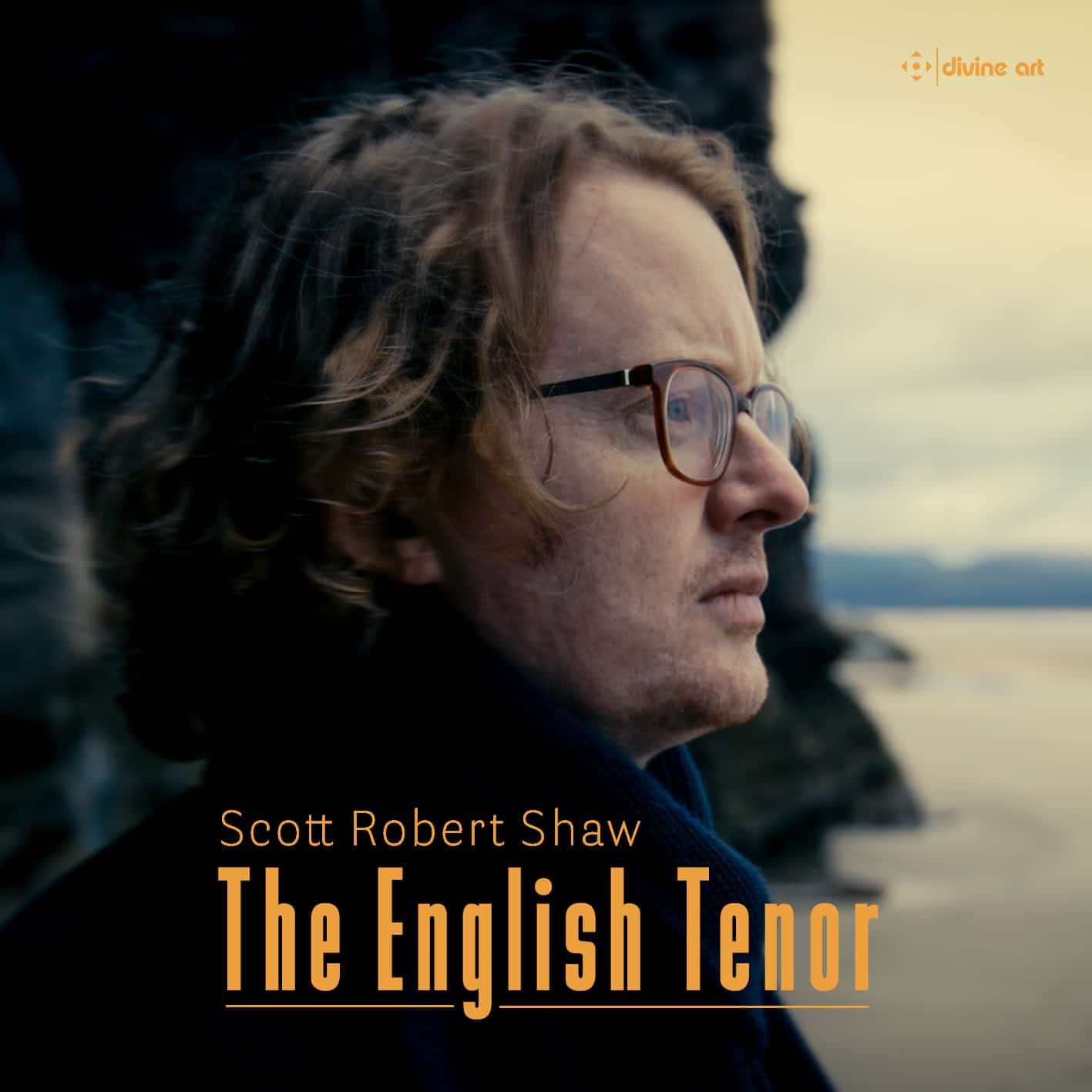InfoDad
The musical flavor is entirely British on a new Divine Art CD featuring tenor Scott Robert Shaw performing no fewer than 30 songs in five cycles, mostly folksong-inspired. Art song is always a specialty item, so it is no surprise that these works are not particularly well-known even though several of their composers certainly are. The disc opens, however, with some less-than-familiar material: Five Elizabethan Songs by Ivor Gurney (1890-1937). Shaw quickly establishes his bona fides with clear pronunciation, accurate accentuation, and warm expression that does not overdo vibrato – the straightforward declamation fits these settings well. The third and shortest song, Under the Greenwood Tree, with its bouncy piano introduction (played by Luba Podgayskaya), is especially pleasant. Each song cycle here gives Shaw a different accompanist. Gurney’s set is followed by Vaughan Williams’ Along the Field, which has eight parts, four of them lasting fewer than 90 seconds each; here the accompaniment is provided by violinist Eva de Vries. The voice-and-violin mixture produces an unusual sonority, and Vaughan Williams’ restraint in use of the instrument means that some of the songs are almost spoken, albeit with singsong delivery. The amount of dissonance in some songs, such as The Half-Moon Westers Low and The Sigh That Heaves the Grass, is somewhat surprising, although not out of keeping in works of this vintage (1927); and the use of the violin is quite nicely proportioned, from its near-absence in some songs to its importance in complementing the voice in Good-Bye and Fancy’s Knell. This cycle contrasts interestingly with Four Songs, Op. 14 by Roger Quilter (1877-1953). Here Shaw’s accompanist is pianist William Drakett, who is particularly sensitive to the scene-setting that is given over to his instrument. A kind of quiet melancholy pervades this cycle, and Shaw nicely conveys the sense of longing underlining the mood. Next on the disc is its most intriguing offering, Britten’s Eight Folksong Arrangements for High Voice and Harp, with Shaw accompanied by Emilie Bastens. Like Vaughan Williams in his voice-and-violin songs, Britten clearly intends the unusual instrumentation of this cycle to contribute significantly to its impact, and so it does: the gently lilting harp envelops the voice throughout without ever competing with it. The songs in which voice and harp seem to go in different directions (Lemady, Bird Scarer’s Song) are especially interesting, but those in which the harp plays an additive emotional role (I Was Lonely and Forlorn, David of the White Rock) are equally effective in a different way. The CD concludes with Let Us Garlands Bring, Op. 18 by Gerald Finzi (1901-1956); here the pianist is James Williams. The mood of these five songs is mostly on the dour side, although Who Is Sylvia and O Mistress Mine, the shortest song settings, offer at least a degree of bright contrast. There is enough similarity among most of the cycles to make this disc a treat for aficionados of folksong-based art song and interpretations in general, and 20th-century British music in particular. Listeners who enjoy the chance to be immersed in this nation’s folk material and this compositional time period will be more than pleased by the disc – and although that means the CD will have only limited appeal, it also indicates that it will be accepted enthusiastically by members of that specific audience.
@divineartrecordingsgroup
Search
Newsletter
A First Inversion Company
Registered Office:
176-178 Pontefract Road, Cudworth, Barnsley S72 8BE
+44 1226 596703
Fort Worth, TX 76110
+1.682.233.4978












